Graham Reid | | 4 min read

Fortunately, Paddy Free and Mike Hodgson, who are Pitch Black, get the joke behind the question: why is it so many electronica artists like themselves live in the bush or by the ocean, and are inspired by all that nature out there?
Whatever happened to nightclubbing and staying up until dawn?
Free, who lives at Piha and calls Karekare his spiritual home, says these days he couldn't live in a city such as London: "I like walking on a beach, I'm a sunset junkie."
Hodgson says the duo, who spent the past two years making Ape to Angel, are gearing up to hit warp speed. The night before, Free's partner had the opening night for her dance production which he had done the music for; on this day they had intended spending a few hours on a video shoot but ended up a full day under the lights; by the time you read this they will have done the first dates on a short New Zealand tour; and, the day after their tour ends, Hodgson heads back to Wellington to pack and move to Auckland.
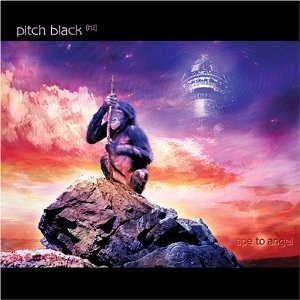 "I've got 24 hours to make sure my
life is in a state that someone else can pack it up, because two days
later we fly to London, and our first gig is two days after that."
"I've got 24 hours to make sure my
life is in a state that someone else can pack it up, because two days
later we fly to London, and our first gig is two days after that."
For Pitch Black it all begins again: an album tour here; dates across Britain and Europe and, for the first time in the States; and then back here before Christmas and the cycle of summer dates.
Others might take a deep breath, but they couldn't be happier - largely because making Ape to Angel has been such a rare and relaxed process, and they feel they've got it right this time.
"We are happier with this album than any other; we certainly have the least regrets about it," says Free, although he later laughs and says "it might be three or four bars too long. I notice it. I think, 'Oh, come on' because I'm waiting for it to get through that bit. But for some people that may be 'The Moment' where they get into it and then come back for the delivery bit I was waiting for."
Ape to Angel finds Pitch Black at a mature and comfortable point in their career. If they had the luxury of time to make it - and they say four years between albums seems perfect - it is because they are professionally and financially fulfilled in other areas.
Free is a renowned producer (notably for Salmonella Dub, with whom he is gearing up for a new album) and creates music independent of the group. Hodgson has a dream gig working with Michael Mizrahi's company, which does the expansive and expensive Louis Vuitton parties around the globe. He realised the parties had 18 minutes of audio-visual entertainment but lasted six hours.
The 30m video screen seemed under-utilised so he and Bruce Ferguson from Kog put in a bid to take care of the lightshow. They got the gig - and almost in passing he mentions sipping Moet at the New York party recently.
What these separate careers mean is, aside from time out from Pitch Black and money coming in, they feed into PB's music tangentially.
But since their last album, the industry climate has changed, and now they find themselves happily back in the role of an indie band. They went to major record companies but the rebuff was that unless they could sell 5000 albums in a few weeks, it wasn't worth the company's time. So they have shifted to a small distributor, Rhythmethod ("Who are passionate about it," says Hodgson) and already the album has sold 1200 copies. They feel as excited as a young band on its first album.
Yet, even though it has been a long time between drinks, PB never seem to have gone away. Their live reputation has sustained them and remixes have fed the fire in their absence. But, largely, it is because their albums have stood up over time.
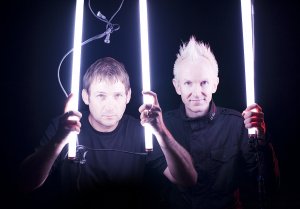 "We've always made 'album albums' that we like people to have in their lives," says Hodgson. "We
let the remixers do the dancefloor versions and, because we play live
so often, don't feel we have to release a 12-inch for a DJ. We're
touring and doing it anyway.
"We've always made 'album albums' that we like people to have in their lives," says Hodgson. "We
let the remixers do the dancefloor versions and, because we play live
so often, don't feel we have to release a 12-inch for a DJ. We're
touring and doing it anyway.
"But we'll get Freq Nasty, Baitercell and Schumacher to do remixes in their own styles, those things can lead to other things."
Free: "They are slow-release albums which is probably why we have a longer lifespan than many bands. We want to be as equally accessible as a pop band so people can listen and not think we have lost it, or are not paying attention. It's so easy in electronica.
"Because our stuff is instrumental all you have is an arrangement to tell the story. I love pop music where you are grabbed by the throat and led through it by an expert, but in electronica that can be difficult."
Between their other commitments, a six-week block became available and during it they took time out at the Coromandel to be free of interruptions.
For men who inhabit dark clubs late at night, there was that other great attraction: nature.
"Living in Coromandel for a week with just some food and booze was great," says Hodgson: "If it's 4am and the idea comes, then you can work on it. And if it's not working, you can just bang on a DVD."
Or go for a walk on the beach.
For an earlier interview with Pitch Black go here.

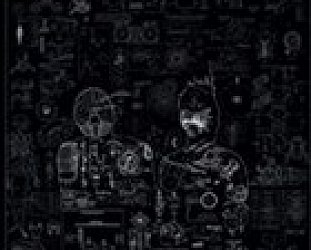
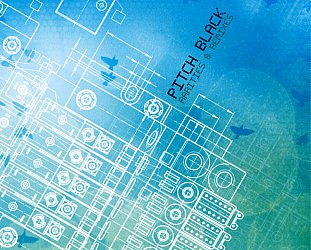
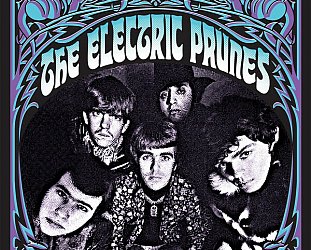
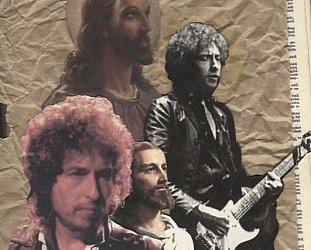
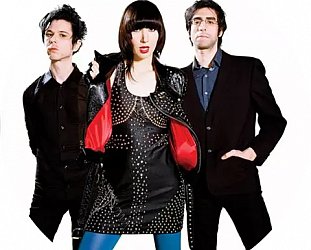
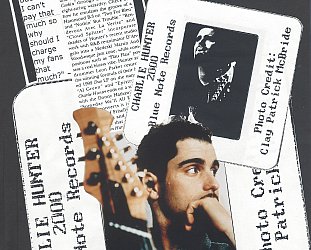
post a comment